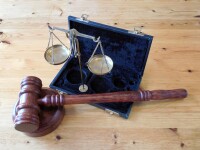Defamation law, Part 1

"Defamation (sometimes known as calumny, vilification, libel, slander or traducement) is the oral or written communication of a false statement about another that unjustly harms their reputation and usually constitutes a tort or crime"- according to Wikipedia.
What is considered as a defamation in Thailand and what laws regulate this issue, will be discussed in this article.
Thailand Criminal Code
Whoever, imputes anything to the other person before a third person in a manner likely to impair the reputation of such other person or to expose such other person to be hated or scorned, is said to commit defamation.
Punishment: imprisonment for up to 1 year and / or fine up to 20 thousand Baht.
Defamation by publishing a document or image: imprisonment for up to 2 years and / or fine up to 200 thousand baht.
Does not apply to the following cases:
Responsibility will not be borne by a defamator who faithfully expresses an opinion or statement in the following cases:
- By way of self-justification or defense, or for the protection of a legitimate interest;
- In the status of being an official in the exercise of his functions;
- By way of fair comment on any person or thing subjected to public criticism; or
- By way of fair report of the open proceeding of any Court or meeting.
<section 329 of the Criminal Code>
If the defamator can prove that his statements are true, he is exempted from liability. But he does not have the right to prove the veracity of his statements if the statements concern the personal life of the victim or his evidence does not bring benefit to society.
The burden of proving the truth of the information lies with the defamator.
If the court verify the guilt of defamation, the court may also order to destroy all defamatory materials and publish the court decision full or in part in one or more newspapers one or more times at the expense of the defamator.
A person affected by defamation has the right to apply for the protection of his rights:
- to the police (the police will gather evidence and hand it over to the prosecutor, who decides to open a criminal case).
- to the criminal court.
Please read the second part of the article, where we will consider the provisions of other regulations that relate to defamation.
Author: Aleksandra Agapitova
All rights reserved.
Copying and using materials without the written consent of the owner is prohibited.

 English
English
 Русский
Русский